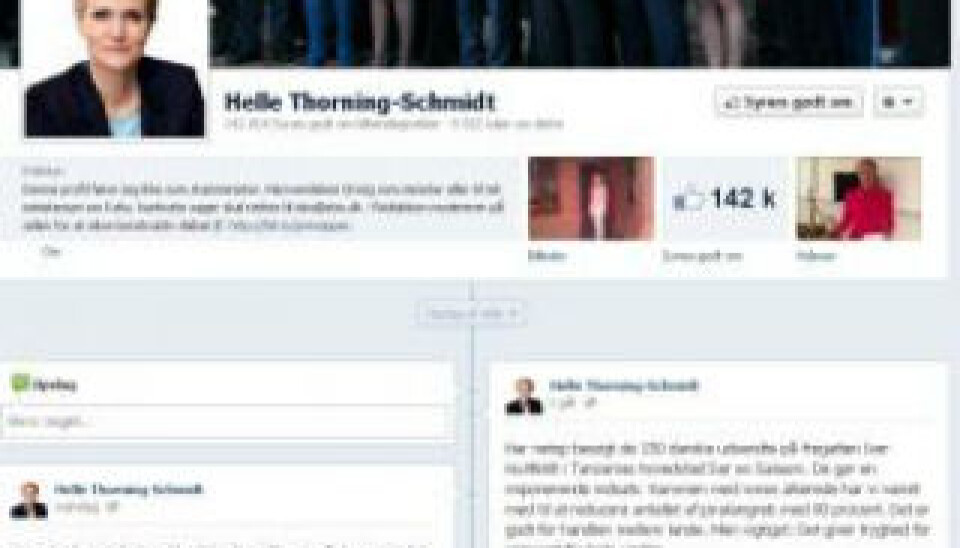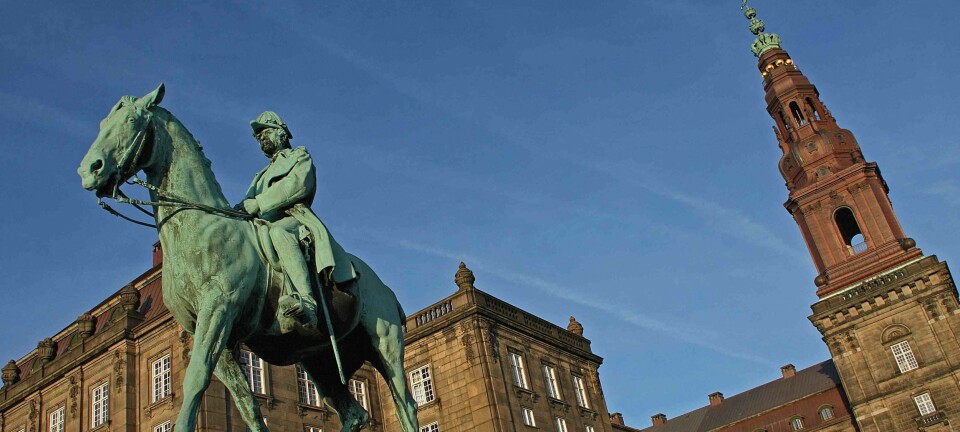
Danish youths shun political debate on Facebook
Young people ’like’ politicians on Facebook to gain information and to be part of a political platform. But they don’t want to appear too engaged.
When Danish youths click the ’like’ button on a politician’s Facebook page, they are fully aware of the image they’re painting of themselves for their virtual friends.
”They are extremely worried about being regarded as proselytising,” says Sarah Grøn, who has just finished her dissertation on why young people become fans of politicians on Facebook at the IT University of Copenhagen.
Although young people are not reluctant to like politicians on Facebook, they are very wary of entering into the political debate on Facebook, she concludes in her paper.
Grøn adds that there is a balancing act between displaying one’s own political identity, which is acceptable, and not appearing to be preaching.
”They’re reluctant to comment on a status update because they have a bad impression of the debating culture on Facebook,” she says.
Your views are shared with everyone
Expressing your opinions by clicking a button is one thing, but by so doing, you’re also sharing your views with your entire friend network on Facebook.
Facebook mixes all these groups up, says Grøn, explaining the problem of one’s political views being shared to everyone, including work colleagues, family and casual friends.
The young people worry that one or more of these groups may have opposing views, and with a single click on the ‘like’ button you risk that your virtual friends start perceiving you differently.
”So they constantly need to think about adapting their message to all these groups.”
Tiny sample indicates a trend
Grøn’s study subjects were 11 students aged 23 to 30, who were interviewed using a qualitative method. She is keen to point out that many more interviews with youths are required before any general conclusions can be drawn.
Political scientist Johannes Andersen of Aalborg University agrees that further studies are required, but he sees potential in Grøn’s findings:
”It proves that a given phenomenon exists,” he says, adding that Grøn’s method is similar to much of the research that is being done in his department.
Identity more important than debate
Andersen believes that the young people’s reluctance to engage in the debate with comments may be a sign that they are not as interested in politics as their Facebook behaviour may suggest.
”Politics is not a crucial part of young people’s identity,” he says. What he thinks is really important to them is the opportunity of sending something out – sharing a message with the world as an expression of their identity.
”Sometimes it’s political, but it can also be about music or culture,” says Andersen.
According to a new report from the Association of Danish Media, Grøn’s conclusion may apply to a broader section of the population, and not only youths. The report states that 18 percent of Danes had ‘liked’ a politician’s status update during the 2011 general election, while only 8 percent commented directly.
One could perhaps ask what the politicians’ status updates would look like if Facebook had a ‘dislike’ button.
----------------------------
Read the Danish version of this article at videnskab.dk
Translated by: Dann Vinther








